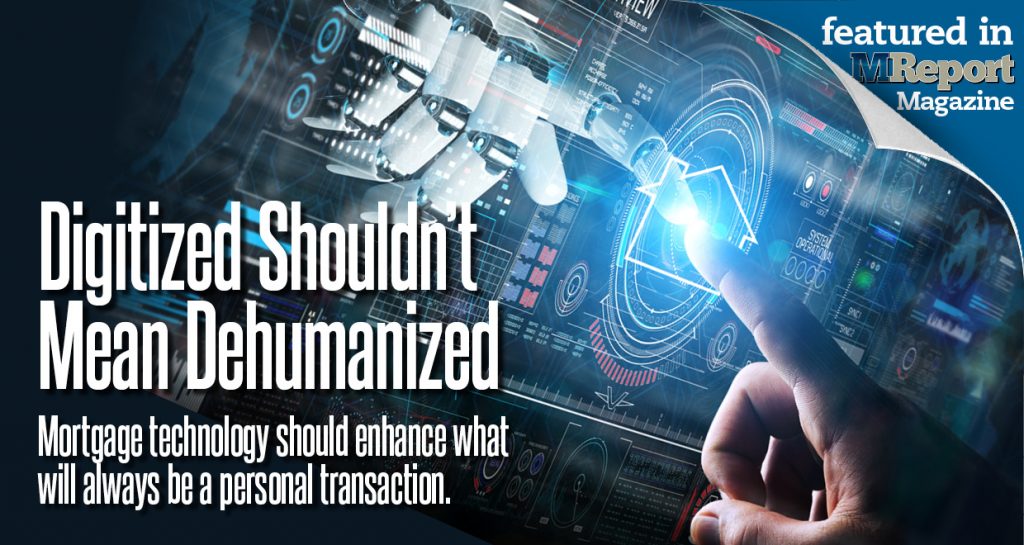
Editor's note: This article appears in the March 2021 issue of MReport magazine, available here.
Stop me if you’ve heard this before.
I use a third-party provider to administer some of my firm’s human resources functions. For years, they provided a dedicated representative (or small team) to handle my interactions with them. The result was an efficient conversation with people I didn’t need to bring up to speed about who I was; what my business does and how we do it. In other words, we skipped the first 10 (inefficient) minutes of a typical call-center interaction. My experience with them was always pleasant and effective.
A little less than a year ago, like so many others, my partner made a change in their customer service model. I no longer have a dedicated team of specialists familiar with my business and its goals. Instead, I have an A.I.-powered chat bot. If, and when, the bot doesn’t completely understand why I’m reaching out, I’m funneled to the queue of a call center. I’m then addressed by whoever’s on the phones at that time, first come-first served. Now, I’ll admit today that I was at first resistant to the idea. And I have come to like the fact that the new approach gives me 24/7 access. But I’ll point out that the A.I. being used for the chat is very good. Nonetheless, the entire episode highlights a truth we need to keep in mind as we gain momentum for digitization.
The mortgage transaction is, at its heart, a personal transaction. As we digitize and automate, it’s important that we not automate that personal touch right out of the equation. Borrowers still want an expert to talk to during the uncertain moments of this complex process.
The Personal Touch
I operate a technology solutions business. This is not an argument against A.I.-powered solutions by any means. We all operate in an industry that has been a little reluctant to automate; a little reluctant to truly reconsider how we put the mortgage transaction together. But this article is a reminder to mortgage businesses of all kinds to remember that ours remains a relationship-based industry. Although consumers, especially Millennials like me, do indeed desire a more efficient experience, they still prefer a trusted advisor over an FAQ or entry-level associate if, and when, they have questions about the transaction.
They should be able to have both.
Please don’t misunderstand me. There are numerous places in the mortgage transaction (sales and operations) that are crying out for more efficient means of production. We’re moving toward that goal as an industry, albeit slowly. But I don’t believe we truly understand the importance of the consumer experience, either. Yes, borrowers want the transaction to move faster. Yes, they want access to explanations for why it may be taking an extra day or two on the appraisal or the title search.
But they also want a human being—one they can trust—who can explain to them what that status means and why they shouldn’t (or should) worry about it. Any bot can tell you that the closing has been delayed a week. Pre-written messaging can be auto populated for the most common questions. The borrower probably has a bit of appreciation for that information. But it takes a trained, experienced human being to explain why the borrower shouldn’t, or should, be nervous about that delay, its causes and how it pertains to this particular transaction.
This is also not to say that a personalized borrower experience needs to be manual. We’ve done that for far too long. But I am suggesting that, as we automate the experience and make it more efficient, we understand where and when it’s time for the borrower to be able to tap “0” on her phone or click a button and get direct access to an expert that understands her concern. It’s time to better understand when the consumer simply wants to tap into an app on his phone … versus when he wants a credible explanation for something he doesn’t understand. And let’s be honest. There’s a lot to the mortgage transaction that most consumers don’t (and shouldn’t be expected to) understand.
Trusted Advisors
Let’s take, for example, mortgage insurance, which empowers homebuyers to become homeowners when, in the past, they might not otherwise have qualified. And yet, according to multiple consumer surveys in 2019, most borrowers don’t understand the need for M.I., and some even have a negative first impression of it, and what it means for them, as well (“Surprising Survey: What Consumers Would Change About the Mortgage Process,” Gina Pogol, HSH.com; October 9, 2019). Many mortgage lenders long for the opportunity to be the “trusted advisor” in the mortgage process. And yet, it often falls to mortgage brokers or real estate agents to explain what M.I. is and why it can actually be a good thing. Too often, the automated option fails to answer the multiple questions most consumers have about something like M.I. and reassure them as to their overall transaction.
How about potential homebuyers just starting to peruse their options? Far too many A.I. options out there right now offer soothing, but far too general, reassurances that just about anyone can get a home loan. And yet, people still don’t trust marketing messaging (which far too often fuels A.I. moderated Q&A segments on lending websites).
A Fannie Mae study (“Consumers Continue to Overestimate Mortgage Requirements,” June, 2019) concedes that “Although the usage of online sources of mortgage information is becoming more common among consumers, they still overestimate the minimum credit score necessary to qualify for a mortgage; overestimate the minimum down payment necessary to qualify for a mortgage; and remain unfamiliar with low down payment programs.”
The study also observes that “Current sources of mortgage education and information are insufficient.” The copy is there. The marketing materials are out there. And yet, although it feels like we inside the mortgage industry have been talking for years about how easy it is for almost anyone to get a mortgage, it’s fairly clear that our marketing materials, chat bots and call centers are not getting that message through. Is it that the message is unclear? Or is it that people don’t necessarily trust scripts, marketing messaging and automated reassurance?
Again, this is not an assertion that A.I. or automation has no place in CX. Far from it. But it hasn’t been executed all that well in its early days in our industry. It will improve. But it appears consumers don’t instantly give a lot of credibility to that A.I. assistant when they have questions—especially when the answers don’t always fit the questions asked. Could it be that we’ve caricatured home buyers (especially Millennials or other younger, first-time homebuyers) as to their desire for an “online transaction?’ Could it be that they want something faster; more efficient and more … rational; and yet, want a knowledgeable human being they can trust to fill in the gray areas or “what-ifs” as they prepare to make the biggest investment of their lives?
It’s a truly marvelous thing to see our industry beginning to embrace the digitizing of an otherwise convoluted; siloed and disjointed process we’ve defended for decades. But let’s not throw out the baby with the bathwater. This is still a personal transaction and a relationship business. Let’s be smart about where and how we automate the process.

 theMReport.com Your trusted source for mortgage banking news
theMReport.com Your trusted source for mortgage banking news









